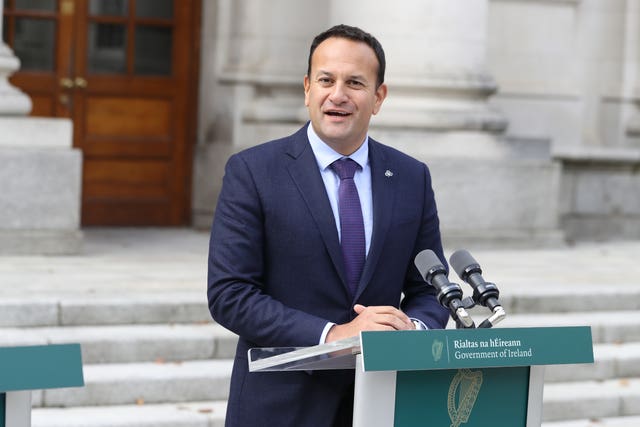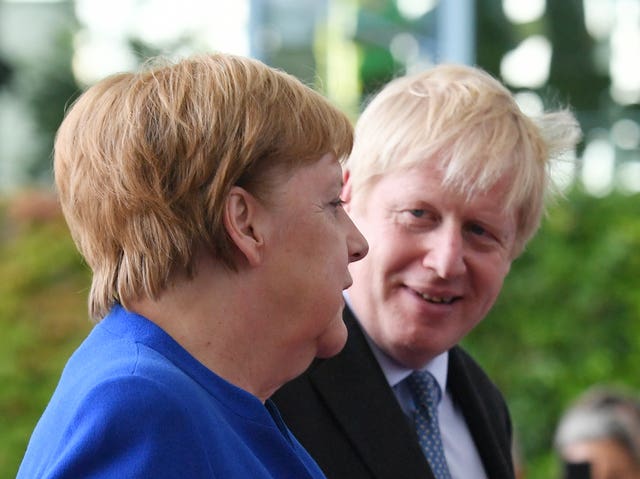
The EU’s chief negotiator Michel Barnier has said there is still no basis for a deal on Britain’s withdrawal from the EU.
Ahead of next week’s crucial EU summit, Mr Barnier said they had yet to see any “operational, legally binding solution” to the issue of the Northern Ireland backstop.
Addressing the European Parliament in Brussels, he said Boris Johnson’s proposals to avoid the return of a hard border with the Irish Republic were based on a system “that hasn’t been properly developed, that hasn’t been tested”.
Mr Johnson’s hopes of securing a deal in time for the summit on October 17 and 18 could now rest on a crunch meeting with Irish prime minister Leo Varadkar.
The two men will hold what was described as a “private meeting” on Thursday at a location in the north west of England, to allow “detailed discussions” with their teams on the process for securing a deal.
Earlier, Government sources said that Mr Johnson was planning an emergency Saturday sitting of Parliament following the summit to be held on October 19.
It is thought the Prime Minister could use the occasion to force a showdown with MPs determined to block a no-deal Brexit.
We are not there in #Brexit talks. EU unity confirmed in @Europarl_EN #EPlenary, alongside @JunckerEU. We will remain calm, constructive, respectful. We need real, credible solutions for the island of Ireland. Finding an agreement is difficult, but still possible. pic.twitter.com/bCIBYKwCt7
— Michel Barnier (@MichelBarnier) October 9, 2019
In his address to MEPs, Mr Barnier said the EU side would continue to work in a “calm” and “constructive” manner to try to find an agreement.
But he made clear that Mr Johnson’s blueprint – which would require the return of customs checks on the island of Ireland – was not the basis for a solution.
“To put things very frankly, though, and to try and be objective, (at) this particular point, we are not really in a position where we are able to find an agreement,” he said.
“The proposal of the British Government as things stand is not something we can accept. It replaces an operational, practical, legal solution with one that is simply a temporary solution.”

Following a series of acrimonious exchanges between London and Brussels on Tuesday, European Commission president Jean-Claude Juncker told the parliament that they would not get drawn into a “blame game”.
“Personally I don’t exclude a deal. We are, Michel and myself, working on a deal. And we are not accepting this blame game which started in London,” he said.
“We will see in the next coming days how things will develop.”
Mr Barnier’s downbeat assessment was echoed by Mr Varadkar, who said Mr Johnson’s insistence that Northern Ireland must leave the customs union with the rest of the UK remained an obstacle to progress.
“That’s their position at the moment and that’s one that is a great difficulty for us,” he told the Irish parliament.

“As far as the Irish Government is concerned, we do want a deal, we’re willing to work hard to get a deal, to work until the last moment to get a deal, but certainly not at any cost.”
If Mr Johnson is unable to get an agreement, he will face a concerted push for MPs to comply with the so-called Benn Act, requiring him to seek a further Brexit delay from Brussels – something he has vowed not to do.
The prospects of an agreement were hanging in the balance after Downing Street accused the EU on Tuesday of making it “essentially impossible” for the UK to leave with a deal.
Following a heated telephone call between Mr Johnson and Angela Merkel, No 10 sources said the German chancellor had made clear that a deal was “overwhelmingly unlikely”.

Mrs Merkel’s spokesman hit back on Wednesday, insisting she would work “until the last possible point” to secure an orderly British withdrawal.
The spokesman said that she continued to regard a no-deal Brexit as “the worst scenario for all concerned”.
Meanwhile there was suspicion among some MPs over Mr Johnson’s plans for an emergency Saturday sitting of Parliament – something which has only happened four times in the past 80 years.
Previous occasions have included the outbreak of the Second World War in 1939, the Suez crisis in 1956 and the invasion of the Falklands in 1982.
Former attorney general Dominic Grieve questioned why they could not wait until the Monday, and expressed concern they were being “manipulated” for “propaganda” purposes.
“Downing Street has become a propaganda department spewing out lies,” he told BBC Radio 4’s The World at One.
“So firstly, it’s deeply corrosive of trust, and secondly, you do have the impression that you’re being manipulated and it is very dangerous activity.”
However Labour leader Jeremy Corbyn said it would be an opportunity for Parliament to demand the Prime Minister complies with the Benn Act.
Mr Johnson has repeatedly said that while he will abide by the law, he will be taking the UK out of the EU on October 31, with or without a deal.
Speaking during a visit to a wind turbine facility in Southampton, Mr Corbyn said: “The idea that the Prime Minister will break the law yet again is something that needs to be borne in mind here.”


Comments: Our rules
We want our comments to be a lively and valuable part of our community - a place where readers can debate and engage with the most important local issues. The ability to comment on our stories is a privilege, not a right, however, and that privilege may be withdrawn if it is abused or misused.
Please report any comments that break our rules.
Read the rules hereLast Updated:
Report this comment Cancel